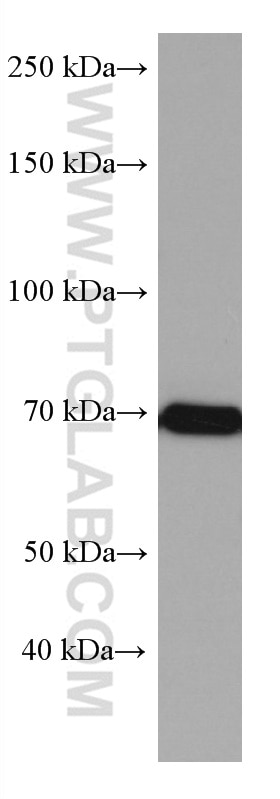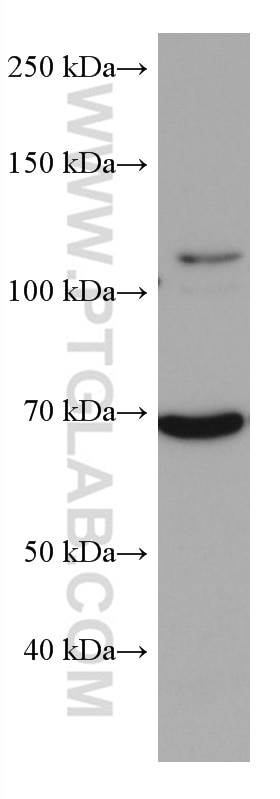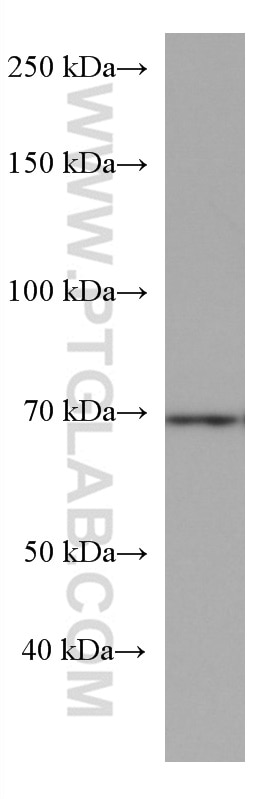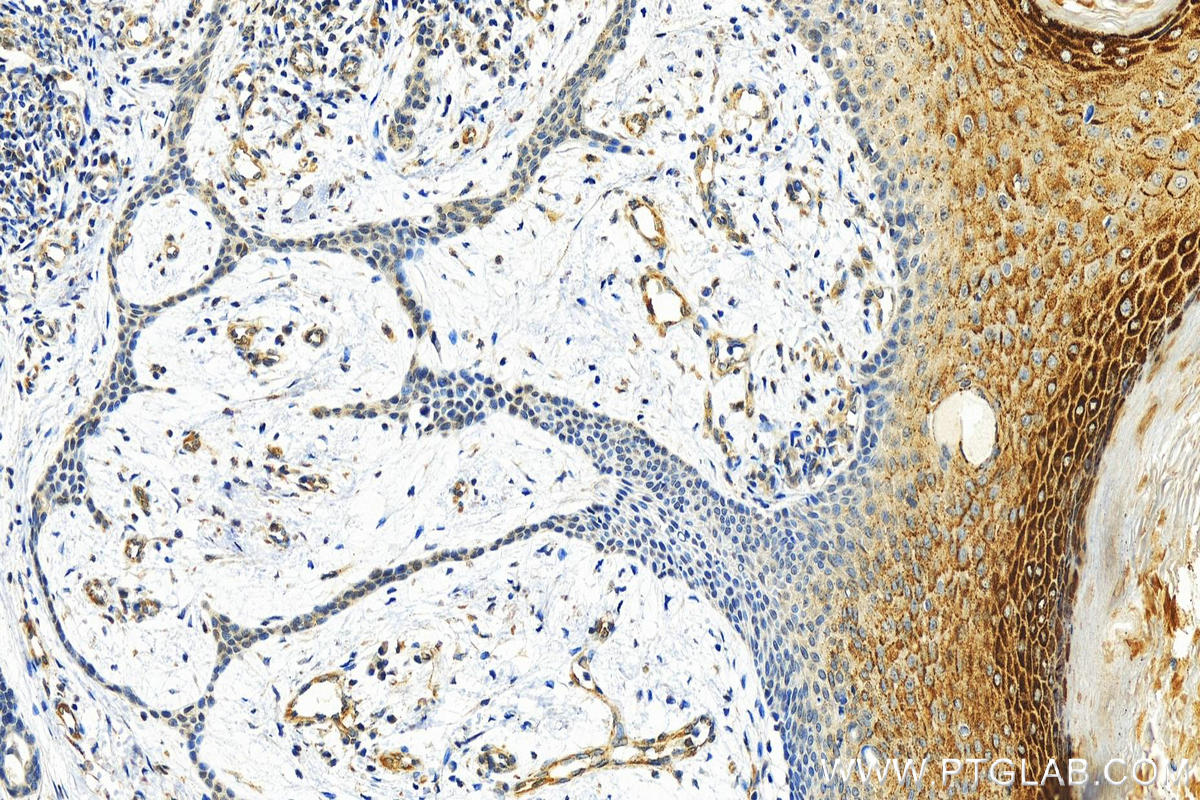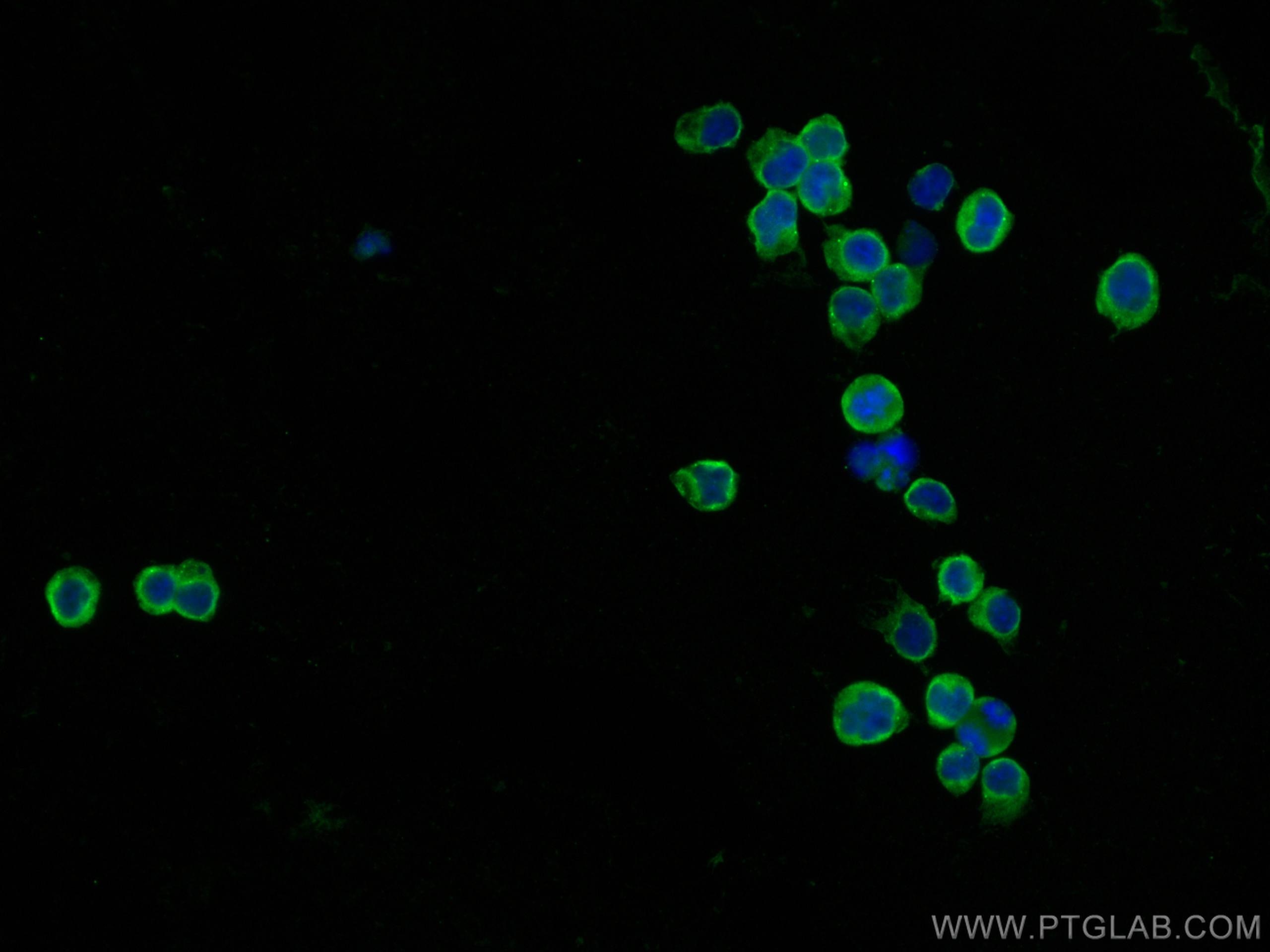Anticorps Monoclonal anti-CDC25B
CDC25B Monoclonal Antibody for WB, IHC, IF/ICC, ELISA
Hôte / Isotype
Mouse / IgG2b
Réactivité testée
Humain, souris
Applications
WB, IHC, IF/ICC, ELISA
Conjugaison
Non conjugué
CloneNo.
1H3A4
N° de cat : 67145-1-Ig
Synonymes
Galerie de données de validation
Applications testées
| Résultats positifs en WB | cellules Sp2/0, cellules Jurkat, cellules U-937 |
| Résultats positifs en IHC | tissu de cancer de la peau humain, il est suggéré de démasquer l'antigène avec un tampon de TE buffer pH 9.0; (*) À défaut, 'le démasquage de l'antigène peut être 'effectué avec un tampon citrate pH 6,0. |
| Résultats positifs en IF/ICC | cellules Jurkat, |
Dilution recommandée
| Application | Dilution |
|---|---|
| Western Blot (WB) | WB : 1:5000-1:50000 |
| Immunohistochimie (IHC) | IHC : 1:1000-1:4000 |
| Immunofluorescence (IF)/ICC | IF/ICC : 1:200-1:800 |
| It is recommended that this reagent should be titrated in each testing system to obtain optimal results. | |
| Sample-dependent, check data in validation data gallery | |
Applications publiées
| WB | See 2 publications below |
| IF | See 1 publications below |
Informations sur le produit
67145-1-Ig cible CDC25B dans les applications de WB, IHC, IF/ICC, ELISA et montre une réactivité avec des échantillons Humain, souris
| Réactivité | Humain, souris |
| Réactivité citée | Humain, souris |
| Hôte / Isotype | Mouse / IgG2b |
| Clonalité | Monoclonal |
| Type | Anticorps |
| Immunogène | CDC25B Protéine recombinante Ag27193 |
| Nom complet | cell division cycle 25 homolog B (S. pombe) |
| Masse moléculaire calculée | 65 kDa |
| Poids moléculaire observé | 69 kDa |
| Numéro d’acquisition GenBank | BC006395 |
| Symbole du gène | CDC25B |
| Identification du gène (NCBI) | 994 |
| Conjugaison | Non conjugué |
| Forme | Liquide |
| Méthode de purification | Purification par protéine A |
| Tampon de stockage | PBS with 0.02% sodium azide and 50% glycerol |
| Conditions de stockage | Stocker à -20°C. Stable pendant un an après l'expédition. L'aliquotage n'est pas nécessaire pour le stockage à -20oC Les 20ul contiennent 0,1% de BSA. |
Informations générales
CDC25B, also named as CDC25HU2, belongs to the MPI phosphatase family. It is a tyrosine protein phosphatase which functions as a dosage-dependent inducer of mitotic progression. CDC25B directly dephosphorylates CDK1 and stimulates its kinase activity. The three isoforms seem to have a different level of activity.
Protocole
| Product Specific Protocols | |
|---|---|
| WB protocol for CDC25B antibody 67145-1-Ig | Download protocol |
| IHC protocol for CDC25B antibody 67145-1-Ig | Download protocol |
| IF protocol for CDC25B antibody 67145-1-Ig | Download protocol |
| Standard Protocols | |
|---|---|
| Click here to view our Standard Protocols |
Publications
| Species | Application | Title |
|---|---|---|
Nat Commun The subcortical maternal complex modulates the cell cycle during early mammalian embryogenesis via 14-3-3 | ||
Microbiome ACE2 shedding exacerbates sepsis-induced gut leak via loss of microbial metabolite 5-methoxytryptophan |
